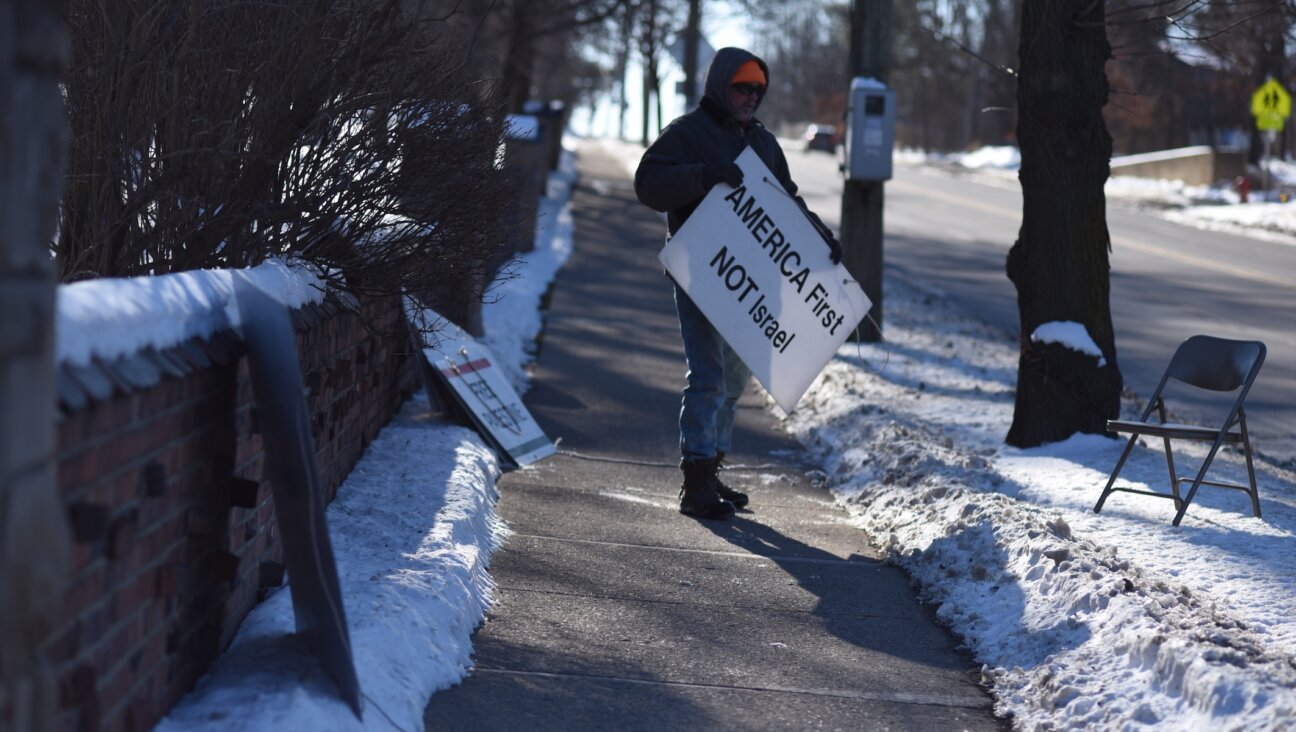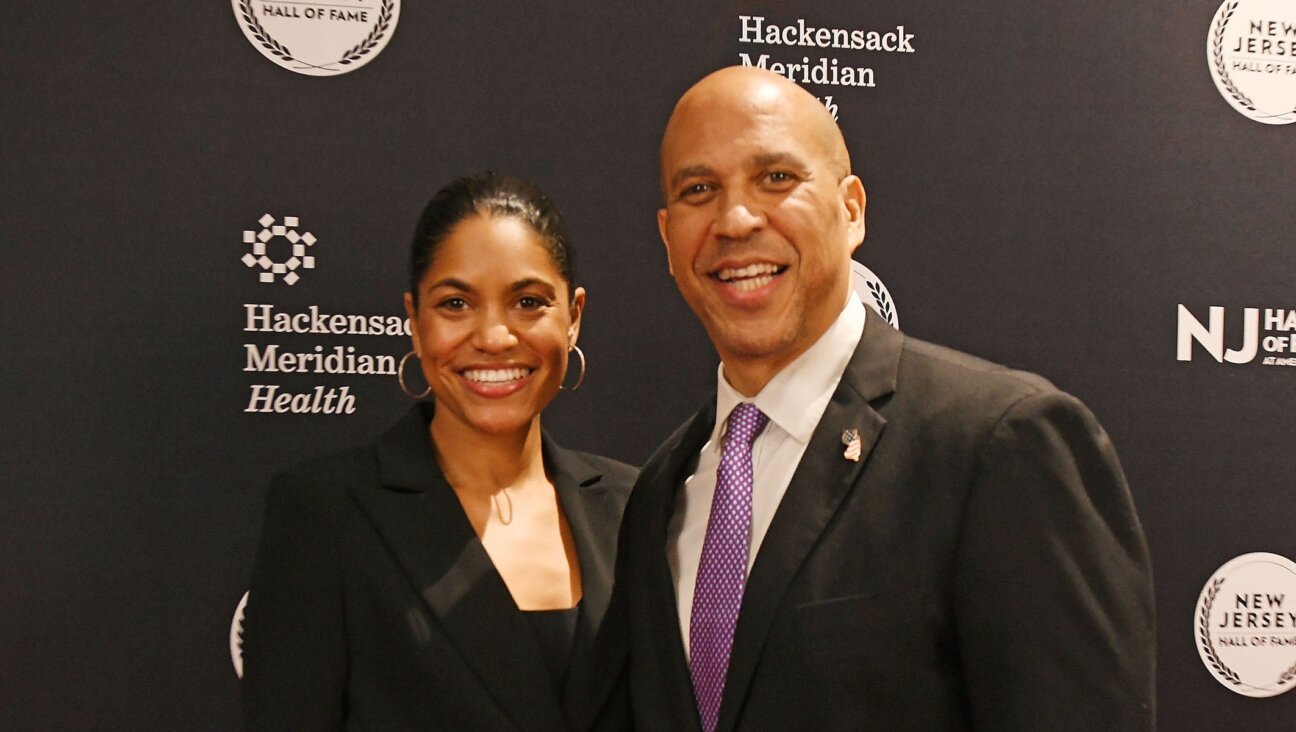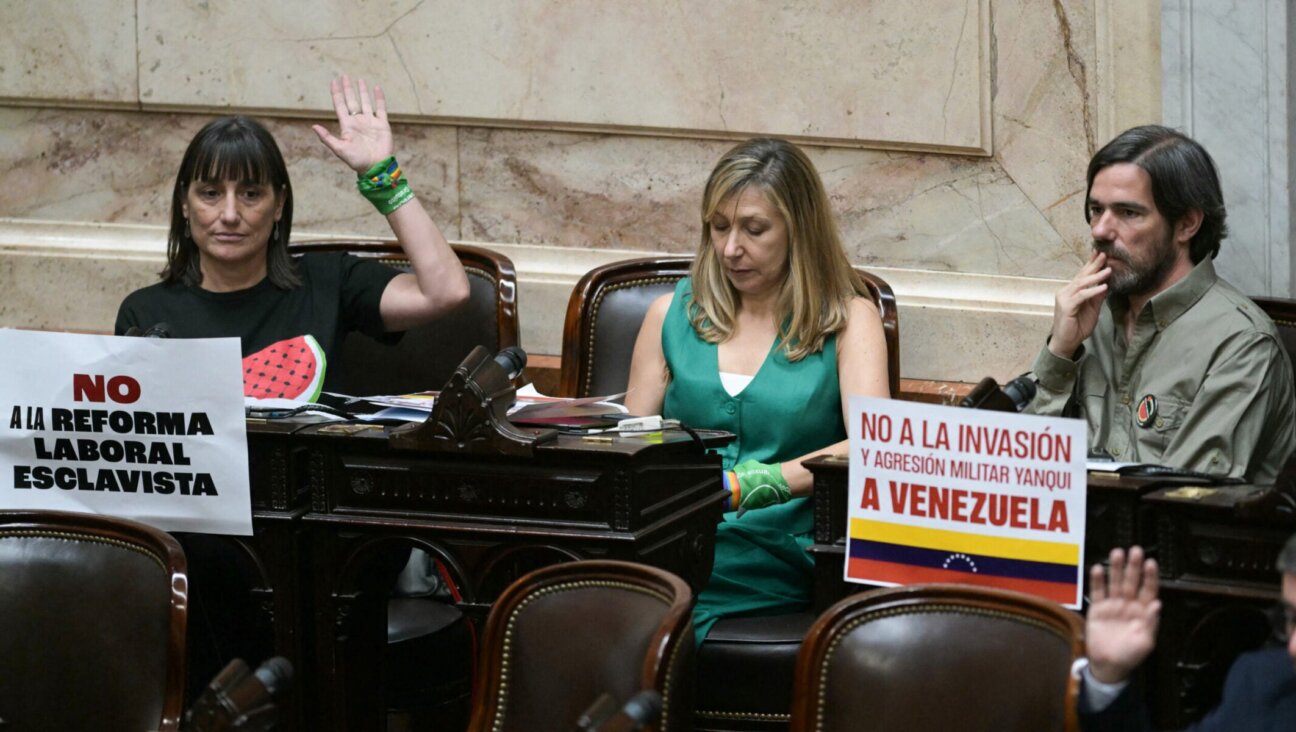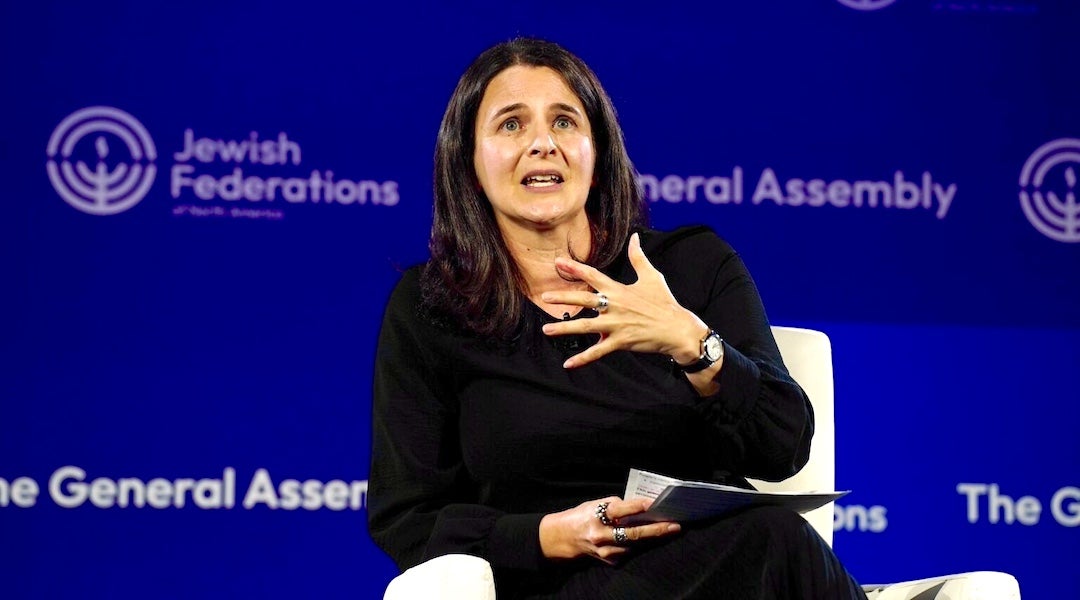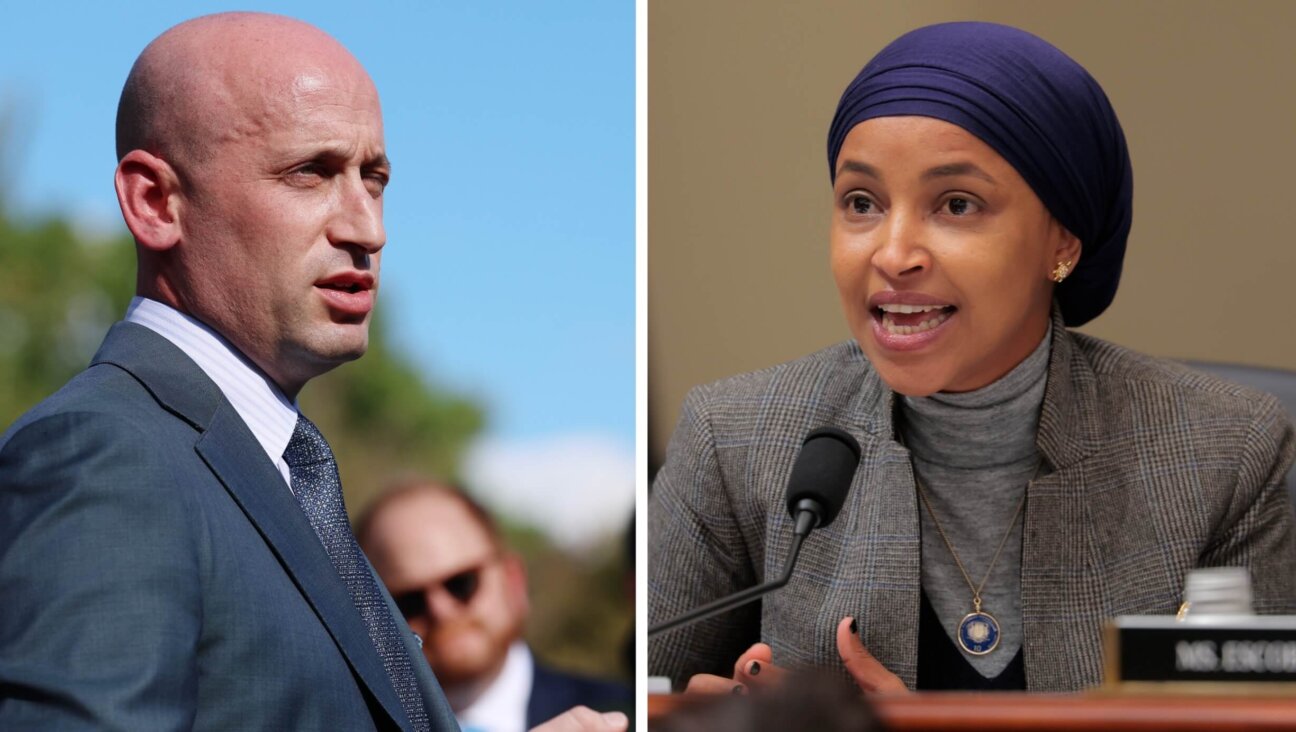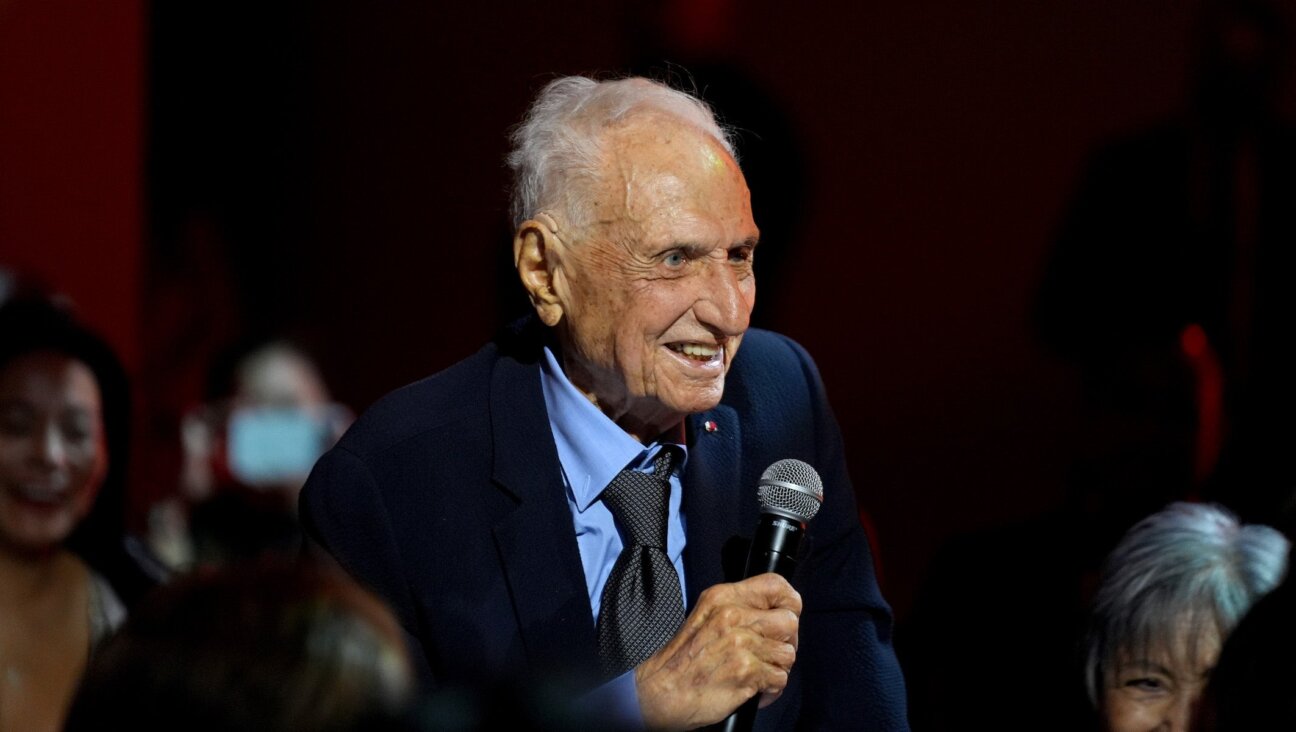Orthodox Abuse Suspects Get Exemption

Graphic by Angelie Zaslavsky
This is an updated version of a story that first appeared on forward.com earlier this week.
Orthodox Jews convicted of or charged with child sex abuse in Brooklyn should have their identities protected because of the community’s “tight-knit and insular” nature, prosecutors claim in a response to The Forward’s request for information about the cases.

No Names of Orthodox: Brooklyn District Attorney Charles Hynes says the ?tight-knit? nature of the Orthodox community makes it impossible to disclose the identities of abuse suspects without also identifying their victims. Image by Kings County District Attorney's Office
Rejecting the request under the state’s Freedom of Information Law, the Brooklyn district attorney’s office stated that Orthodox Jews deserve a blanket exemption from the usual public disclosure rules.
Brooklyn prosecutors, working in the office of District Attorney Charles Hynes, claimed that Orthodox Jews are “unique” in that releasing the names of suspects would allow others in the community to identify their victims.
“The circumstances here are unique,” Assistant District Attorney Morgan Dennehy wrote in an April 16 letter to the Forward. “Because all of the requested defendant names relate to Hasidic men who are alleged to have committed sex crimes against Hasidic victims within a very tight-knit and insular Brooklyn community, there is a significant danger that the disclosure of the defendants’ names would lead members of that community to discern the identities of the victims.”
The policy quickly came under fire from community groups, children’s advocates and legal experts.
Agudath Israel of America, an Orthodox umbrella group that usually supports Hynes’s approach to combating abuse in the community, came out against the decision to claim a blanket exemption.
Rabbi David Zwiebel, who is Agudath’s executive vice president and a legal expert, said that a policy of withholding names of perpetrators should not be “across the board” in any community, according to Agudath spokesman Rabbi Avi Shafran.
Instead, Zwiebel believes that the release of defendants’ names should be evaluated on “a case-by-case basis,” Shafran said.
Although Brooklyn District Attorney Hynes has long resisted requests to identify Orthodox sex suspects, the letter is believed to represent the first time his office spelled out why it specifically singled them out for preferential treatment.
Dennehy cited the state’s civil rights laws in denying the Forward’s request for the names of 85 Orthodox Jews arrested on sex charges during the past three years. The Forward made its request in December 2011 after prosecutors announced that scores of Orthodox Jews had been charged under a special program designed to encourage the community to come forward with information.
He did not explain whether prosecutors had concluded that there was anything specific about each of the 85 suspects that might make it possible for others to determine the identity of the victim from the identity of the suspect.
He also did not explain whether such a blanket exemption might be granted to other similarly “tight-knit” communities in the borough. And there were no details about what criteria prosecutors would use to determine whether a particular group should be granted such preferential status.’
Dennehy also claimed that revealing the names of abuse suspects could harm the operation of the D.A.’s special hotline, Kol Tzedek, or the Voice of Justice, which was set up three years ago to encourage Orthodox abuse victims to come forward. Disclosing suspects’ names could cause victims to lose faith in the hotline, which, in turn, would “interfere with law enforcement investigations or judicial proceedings,” he claimed.
Marci Hamilton, a law professor at Yeshiva University, said that prosecutors’ refusal to release the suspects’ names or other information about their alleged crimes amounts to “enabling” abusers.
“I think they are complicit in what enables these kinds of perpetrators in these kinds of communities if they are going… to refuse to publish names of any child sex predators,” Hamilton said. “When names of perpetrators are made public, their other victims are empowered to come forward and the whole community is given the power to identify and stop them and other predators.”
Hamilton added, “What the D.A.’s office is doing, unfortunately, is playing right into the hands of the abusers.”
Laura Ahearn, executive director of the advocacy group Parents for Megan’s Law, said disclosure laws must be applied equally to everyone.
Her group advocates for enforcement of the rules mandating identification of sex offenders. The issue came to national prominence after the 1994 rape and murder of Megan Kanka in suburban New Jersey by a convicted sex offender living on the family’s block.
“[Hynes’s] decision to withhold names is likely leaving the public vulnerable,” Ahearn said.
Daniel Mullkoff, a legal fellow with the New York Civil Liberties Union, said there was no good reason to withhold the names of abuse suspects from the public.
“In this case, the public has raised concerns about what the district attorney is doing,” he said. “Withholding of this information is without a legal basis and denies access to just the type of information that the public records law seeks to make public.”
In October 2009, Hynes’s office redacted the names of 26 Orthodox Jews on a list of those charged with sex crimes. A Freedom of Information Law request submitted by the Forward to see those names was refused.
When Hynes last year trumpeted the arrests of 85 Orthodox Jews on sex crimes charges since 2008, he again refused to release the suspects’ names.
He cited the need to protect the identity of victims. Yet that same week, Hynes issued a press release publicizing the name of a non-Jewish man convicted of raping his girlfriend’s daughter. Hynes released the man’s name, the neighborhood where he lived and the victim’s age, enough information for any neighbor to identify the girl.
Hynes even refused to name 14 Orthodox defendants who were convicted of sex crimes, 10 of whom pleaded guilty. They were sentenced to between one month and 20 years in jail. Although some of those cases were covered in the media, several were adjudicated without public scrutiny.
An additional 24 people were released on probation after pleading to reduced charges, or after their cases were dismissed. Again, it is likely these cases were not reported in the media.
Marc Klaas, whose 12-year-old daughter, Polly, was abducted from the family’s Petaluma, Calif., home in 1993 and murdered, said he was very concerned about Hynes’s policy of withholding suspected sex offenders’ names.
Klaas said it was particularly wrongheaded to withhold the names of people who have pleaded guilty to lesser crimes, which would allow them to avoid having to register as sex offenders.
“The public has the right to know who these individuals are, so they can use that information to protect themselves against those individuals,” Klaas said.
Contact Paul Berger at [email protected] or on Twitter @pdberger

